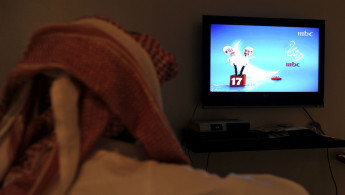Ramadan, the month of must-see television
But aside from its religious significance, over the past half-century it has also become a special season for television entertainment.
The first Ramadan entertainers were the Hakawatis, the storytellers.
Long before the age of radio, television and the internet they entertained crowds in the cafes of Baghdad, Damascus and Cairo during the long Ramadan nights, with epic stories inspired by religion and folklore.
But the advent of radio and television meant the end of these traditional storytellers.
Riddles for Ramadan
The earliest non-religious Ramadan-themed production were the Fawazeer, or Riddles, launched on Egyptian radio in the early 1960s. Two radio personalities in particular were associated with the Fawazeer in that period, Amal Fahmy and Samia Sadek. They would ask viewers to solve riddles and send their answers in by mail.
The Fawazeer made the jump to television in 1967 and they quickly became an annual tradition in Egypt and across the Arab world. Many Egyptian actors appeared on Fawazeer, but perhaps the names most associated with the variety show even today are Nelly, Samir Ghanem, and Sherihan.
| TV ratings in Ramadan remain high well into the night. |
The golden age of Fawazeer ended in the 1990s with the rise of Arab satellite channels and musalsalat, serialised dramas. Recent attempts at reviving them have been unsuccessful.
Primetime Ramadan
After the 1990s, the state monopoly on Arab television effectively ended with the rise in privately owned satellite television networks.
With Ramadan becoming television "sweeps month", it was almost inevitable that commercialisation and lucrative ad revenues would lead to what we now know as primetime Ramadan, with anything from interactive game shows and soap operas, candid-camera shows, to religious talk shows and biopics dominating the airwaves throughout the holy month.
Television is now a central feature of Ramadan, as many Muslims gather around their televisions every night after breaking their fast. Ratings in Ramadan remain high well into the night, and the cost of a 30-second advertisement during peak Ramadan viewing hours can be more than twice the normal rate.
For the Arab television industry, Ramadan has thus become the "do-or-die" season, shaping production and programming trends for the entire year. As viewer expectations have risen, so has the quality of Ramadan's dramas, soaps, comedies and game shows, with some productions costing millions of dollars.
One of Ramadan television's most common genres is the musalsalat - the serialised dramas.
A typical serial consists of 30 episodes, one for each day of the holy month. They can be on almost any topic and set anywhere from past periods of pan-Islamic rule to modern urban centres, while characters range from historical figures to contemporary public servants and ordinary people.
The Syrian period drama Bab al-Hara ["Gate of the Neighbourhood"] is often cited as one of the most successful Ramadan series of all time, with a seventh season slated to air this Ramadan.
Entertainment or religion?
For the more conservatively minded Muslims, however, the televisual tradition distracts from the month's spiritual meaning. Meanwhile, some Ramadan shows have sometimes caused controversy, for example by featuring sensitive topics or revered religious figures.
Not all controversies have to do with religion or the conservative demographic. Some Ramadan series have been accused of reinforcing stereotypes or promoting outdated views, such as the Egyptian drama revolving around the polygamous Hajj Metwalli.
This year's highlights
There will be many Ramadan shows, both local and pan-Arab, to pick from this year. In Lebanon, one of the most anticipated shows is 24 Kirat (24 Carat), which will feature many household Lebanese and Syrian names.
In Egypt, a new series, Haret al-Yahood [The Jewish Quarter"] about the Jewish community in mid-20th century Egypt is gaining attention, including in Israel. As Jewish-Arab relations are a sensitive topic, it remains to be seen just how much controversy this show will generate in the coming month.
Stay tuned.



